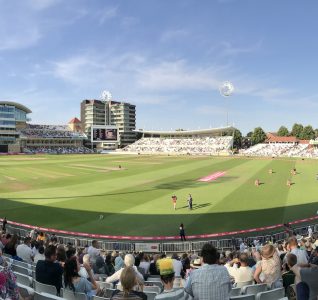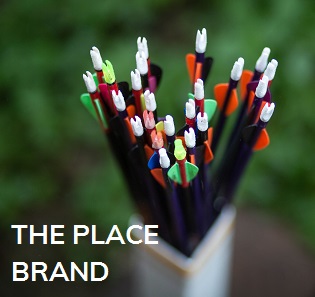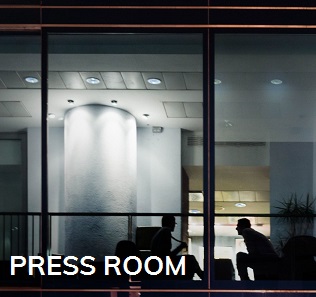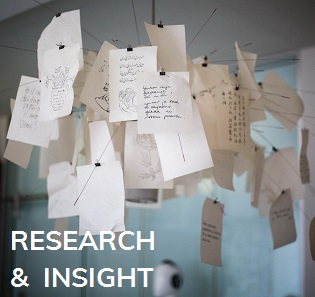Accessibility is a topical issue for tourism in 2020, and rightly so. We believe Nottinghamshire should be a wholly inclusive city, which means making it as easy as possible for those with access needs to get around and enjoy the same events, attractions, restaurants and venues as everyone else.
While each business differs in the levels of accessibility they can offer, having this information available to customers so they can plan a visit is something every business can do. Despite this, it is estimated that 63% of businesses do not promote the fact they make provisions for guests with access needs (Ref: Eurostat survey.)
In this blog you can find advice and ideas on how to effectively communicate the accessibility information regarding your business, including facilities, services, and restrictions.
– Why information on accessibility is important
– What you can include on your Visit Nottinghamshire listing
– How to build an access guide for your business
– Special events and offers
– Ideas for the future
– Resources for further reading
Accessibility
The term ‘accessibility needs’ encompasses a huge range of physical disabilities, illnesses and special needs, including sight impairments, wheelchair
Accessibility refers to the degree to which a product, device, service, or environment is available to as many people as possible.
Why Information on Accessibility is Important
– More than 1 in 5 potential visitors have a disability
– 95% of visitors with access needs check accessibility information before visiting a venue (Ref: Euan’s Guide survey)
– 75% of these visitors have walked away from a UK business due to poor accessibility
– Visitors with disabilities contribute an estimated £12bn to the UK tourism industry (Ref: Visit Britain)
– Providing access facilities and clear information can help you generate positive reviews online (and avoid negative ones).
Information on the Visit Nottinghamshire Website
We have recently been updating our accessibility information on the Visit Nottinghamshire website in an effort to provide as much information as possible to visitors to Nottinghamshire who have access needs.
Along with a main accessibility page, we currently have the following pages on the Visit Nottinghamshire website: Accessible Public Toilets, Accessible Travel, Accessible Attractions, Accessible Accommodation, Accessible Drinking & Dining, along with Autism Friendly Venues and a page of Useful Contacts. Please feel free to browse these pages – perhaps your business could feature here somewhere? If so, please let us know!
Access Statements & Guides
An Accessibility Guide can help you to communicate your facilities and services to disabled people and other customers who want specific accessibility information, such as older travellers and families with young children. They often detail everything from wheelchair access or number of steps in the building, to specific staff training or features that may assist their visit. Access guides may not be necessary for everyone, but for visitors with access needs they are integral to planning a trip.
Please make sure you have sent us a PDF of your business’ Accessibility Guide, which we will add to your Visit Notts’ listing. Once you have sent us this, your listing will be included in search results for accessible accommodation, attractions, restaurants, bars and cafes. If you have sent us a guide in the past, please visit your listing and check it over to see if it is up to date.
For help with creating your guide, take a look at AccessibilityGuides.org which provides lots of information, including an easy to fill in questionnaire, top tips, and examples from a number of industries.
Ideas for the future
We know that unfortunately for many businesses there are restrictions in becoming fully accessible, most often due to the type of building or terrain. While building a wheelchair accessible bathroom or allowing access to all areas of a building might not be viable, there may be other ways in which you could improve.
– Staff training to recognise and understand the concept of invisible illness.
– Extra signage around the building to direct and inform visitors.
– Special events for those with access needs.
– Liaising with nearby businesses that could offer resources you don’t (such as an accessible bathroom).
– Extra resources such as large print menus.
Specialised Events
Some venues and attractions provide specific events for those with access needs. This may include having extra reserved seating, subtitled or audio described film screenings, large-print or braille hand-outs, no use of strobe lighting, or rejigging seating layouts to maximise space for wheelchairs and scooters.
Relaxed and Sensory Adapted theatre performances are becoming more common. Targeted at those with autism or learning disabilities, these events may have brighter lighting, chill-out spaces provided and re-entry when needed.
Could you provide a specialised version of one of your regular events? Take a look at this Eventbrite Guide: 10 Ways to Make Your Event More Accessible.
Special Offers for Carers
Another popular idea is to provide special discounts for carers, making entry to attractions all the more affordable for those that need a carer.
If you’d like to promote a carers discount, please let us know and we can feature it within the Special Offers area of the Visit Nottinghamshire and on your listing!
Accessible & Inclusive Tourism Awards
In recognition of their wide range of facilities for those with access needs, Nottingham Playhouse received an award for Accessible & Inclusive Tourism at the Nottinghamshire Hospitality STARS Awards 2019.
Along with comprehensive information listed on their website, they have created this ‘Visual Story’ video, which helps visitors familiarise themselves with the building before their visit.
Resources
We understand it might feel like a mammoth task to make your business accessible. To help, check out some of these excellent resources to help you along.
- AccessibilityGuides.org provides lots of information on creating your Access Guide, including an easy to fill in questionnaire, top tips, and examples from a number of industries.
- Euan’s Guide provides disabled access reviews for disabled people by disabled people. Check out their Top 10 Ways to Make Your Venue More Accessible, or get your venue listed on the site.
- The World Wide Web Consortium (W3C) offers information on making your website accessible for people with disabilities.
- Eventbrite Guide: 10 Ways to Make Your Event More Accessible.
- This blog from Gov.org discusses the term accessibility and the range of needs it covers
Posted on 27 January 2020







